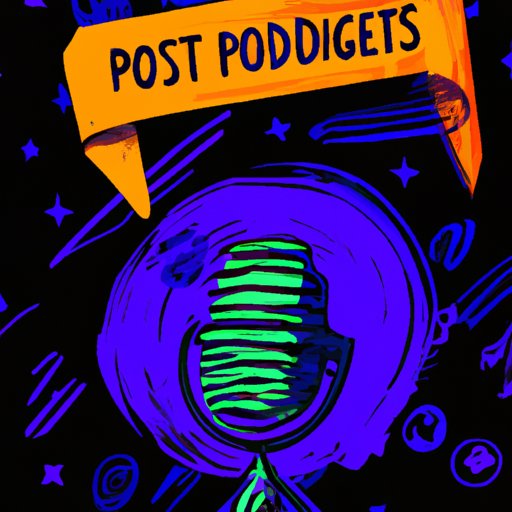
How to Make Money from a Podcast
Podcasts have exploded in popularity over the last several years, with millions tuning in each week to listen to their favorite hosts discuss topics ranging from true crime to personal development. While many podcasts are created out of passion and a desire to share knowledge or stories, it’s no secret that some podcasters are able to make a living from their show. In this article, we’ll explore six ways that podcasters can make money from their podcast, providing valuable insights and examples along the way.
Sponsorships and Advertising
One of the most common ways that podcasters are able to make money is through sponsorships and advertising. In this model, companies or brands will pay to have their product or service advertised on a podcast. Podcasters typically negotiate the terms of the sponsorship agreement, such as the length of the ad, where it will be placed within the episode, and how often it will be played.
There are several types of ad formats that podcasters can choose from, including pre-roll, mid-roll, and post-roll ads. Pre-roll ads are placed at the beginning of the episode, mid-roll ads are played during the middle of the episode, and post-roll ads are played at the end of the episode. The placement of the ad can have an impact on its effectiveness – for example, mid-roll ads may be more effective because listeners have already had a chance to engage with the podcast host and are more likely to trust their recommendations.
Successful examples of sponsorships in the podcasting industry include Squarespace sponsoring Serial and Blue Apron sponsoring My Favorite Murder. These partnerships have been effective because they align with the content and audience of the podcast, providing value to both the sponsor and the podcaster.
Affiliate Marketing
Affiliate marketing is another way that podcasters can monetize their show. In this model, podcasters promote a product or service to their listeners and receive a commission for each sale that is made through their unique affiliate link.
To incorporate affiliate marketing into their show, podcasters can identify products or services that align with their brand and audience, and discuss them during an episode. They can also create dedicated episodes or segments where they review or recommend specific products or services.
Successful examples of affiliate marketing programs in the podcasting industry include the Tim Ferriss Show’s affiliate program with Four Sigmatic and The GaryVee Audio Experience’s affiliate program with Wine Library.
Merchandising and Product Sales
Merchandising and product sales is a popular way for podcasters to create additional revenue streams. There are several types of merchandise that podcasters can sell, such as t-shirts, mugs, and other branded items. These items not only provide an additional revenue source, but they also help to strengthen the connection between the podcaster and their audience.
In addition to merchandise, podcasters can also use their audience to fund and develop their own products. For example, the podcast My Dad Wrote a Porno has developed a successful series of books based on the content of their show.
Other successful examples of podcasters selling merchandise and products related to their show include The Adventure Zone’s graphic novel series and Bodega Boys’ branded clothing line.
Crowdfunding and Donations
Crowdfunding and donations are another way that podcasters can make money from their show. Platforms such as Patreon and Kickstarter allow podcasters to set up accounts and ask their listeners for financial support. In exchange for their donations, listeners may receive exclusive content or other perks.
In addition to dedicated crowdfunding platforms, podcasters can also ask for donations directly through their website or social media channels. This approach relies heavily on the generosity of the podcaster’s audience, but can be effective if executed correctly.
Successful examples of podcasters relying on crowdfunding and donations as a source of income include Hardcore History and The Dollop, both of which have robust Patreon accounts with thousands of subscribers.
Premium Content and Subscriptions
Premium content and subscriptions are a way for podcasters to offer bonus content to listeners who are willing to pay a monthly or yearly fee. This content could include additional episodes, extended interviews, or behind-the-scenes access.
Podcasters can choose from several subscription models, such as pay-per-episode or tiered subscriptions. Pay-per-episode subscriptions provide access to individual episodes or sets of episodes, while tiered subscriptions offer different levels of access or content based on the subscriber’s payment level.
Successful examples of podcasters implementing a subscription-based model include Slate’s Slow Burn and Wondery’s Business Wars.
Public Speaking Engagements and Live Events
Podcasters can also make money by participating in public speaking engagements and live events. These events can take a variety of forms, such as live shows, meet-and-greets, or guest appearances at conferences or festivals.
Podcasters can leverage their audience to secure these types of engagements – the more listeners a podcast has, the more attractive they may be as a speaker or guest. In addition to the revenue generated by speaking fees, these events can also be a way for podcasters to connect with their audience in real life and build stronger relationships.
Successful examples of podcasters using public speaking engagements and live events as a source of income include Pod Save America with their nationwide tour and My Favorite Murder’s live shows.
Conclusion
Podcasters have several options when it comes to monetizing their show. Sponsorships and advertising, affiliate marketing, merchandising and product sales, crowdfunding and donations, premium content and subscriptions, and public speaking engagements and live events are all viable ways to create revenue streams.
The key to success is understanding the podcaster’s brand, audience, and goals, and choosing the monetization strategy that aligns best with these factors. By exploring these options and experimenting with different approaches, podcasters can take their show to the next level and generate income at the same time.




